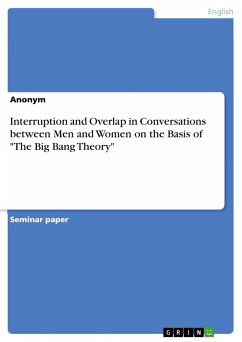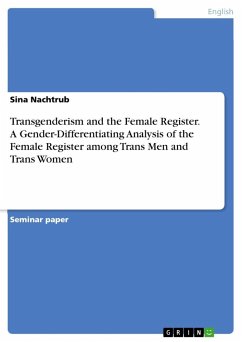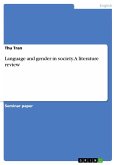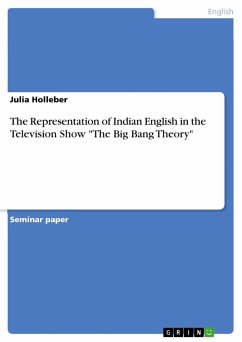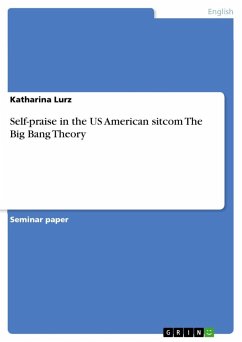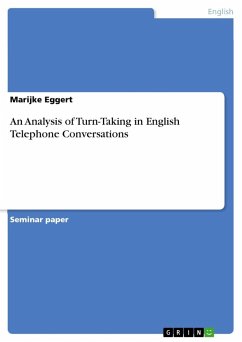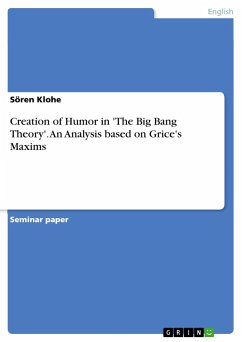Seminar paper from the year 2018 in the subject English Language and Literature Studies - Linguistics, grade: 1,3, University of Bremen, course: Seminar: Key Topics in Linguistics: Language and Gender, language: English, abstract: The purpose of this paper is to analyse the portrayal of dominance and control in cross-sex interactions on television. In doing so, stereotypical behaviour of men and women could certainly become visible since what we see on screen is often a reflection of what we expect to see. This study will focus on the analysis of instances of interruption and overlap in the American television series "The Big Bang Theory". By looking at the portrayal of gender behaviour in regards to the cross-sex interactions, the aim will be to observe how power relations between opposite sexes is portrayed to us through television and what it tells us about stereotypical thinking in our society. The difference in male and female language is a frequently discussed subject in modern research. Investigating the different utilization of language of both sexes does not only seem to be of interest to linguists and anthropologists, but equally to modern feminists who for instance engage with the issue of power and the role that it plays in conversations between men and women. Gender researchers such as Don H. Zimmerman and Candace West have helped create the groundwork for the examination of this topic by claiming that interruption is mostly done by men, and that this phenomenon correlates with the fact that dominance and control is often directed towards women during conversations. However, studies such as Zimmerman's and West's have been deemed problematic due to criticism relating to the fact that their main focus lies solely on gender; therefore excluding other important and relevant aspects of identity such as ethnicity, nationality, and occupation.
Hinweis: Dieser Artikel kann nur an eine deutsche Lieferadresse ausgeliefert werden.
Hinweis: Dieser Artikel kann nur an eine deutsche Lieferadresse ausgeliefert werden.

